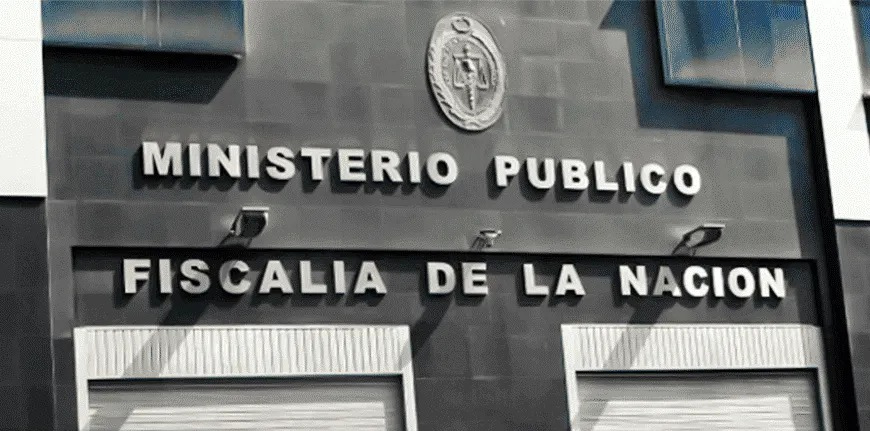Q
Trying to emulate the impact of the photos that unleashed the Missile Crisis in 1962, some US media insist on maintaining the story of Chinese spy bases in Cuba.
This plot goes back to when The Wall Street Journal (WSJ) published an article in 2023 titled Cuba to Host Secret Chinese Spy Base Focusing on USabout an alleged agreement between China and Cuba to create an electronic espionage facility on the island.
Days later he published another titled China’s New Military Footprint in Cubasaying that the Chinese government would build military training bases in Cuba.
But both claims were immediately dismissed by the Pentagon:
I can tell you, based on the information we have, that that publication is not accurate and that we are not aware of China and Cuba developing a new type of spy station
the spokesperson said, quoted by Reuters, under the heading Pentagon Dismisses WSJ Report on China Spy Station in Cuba.
Forgetting that experience, the editors of WSJ return to the narrative of Chinese-Cuban espionage, which to this day other media replicate to keep it afloat, and in July 2024 they published a new article: Satellite Images Show Expansion of Suspected Chinese Spy Bases in Cubacommenting that satellite photos show SIGINT antenna fields ( Signals Intelligence) that can be directed to capture radio communications.
The alleged revelations are presented as supported by a report from the Center for Strategic and International Studies (CSIS), a think tank based in Washington.
However, it is precisely in the source where there is a contradiction that can lead to a new fiasco like the one caused before by the Pentagon, since the CSIS investigators were the same ones who came to the conclusion that the supposed Chinese espionage balloon that flew over US territory in February 2023 could hardly have been an espionage operation, and was most likely, as the Chinese claimed, an out-of-control weather balloon.
In a publication with a certain mocking tone, titled Chinese Spy Balloons: The Sky’s the LimitCSIS experts stated that most communications and espionage take place in cyberspace, so the Chinese balloon story to spy on radio communications was a media distraction –look for chinese spies under the bed
–, and that what the United States really needed was better cybersecurity.
Doesn’t the same logic apply to the history of Chinese-Cuban radio antennas?
However, CSIS speculates about bases in Cuba, claiming that they can obtain information about the trajectory of space rockets that take off from Florida. The matter once again leaves the Pentagon in a very compromised situation.
In reality, there is no evidence that the photographed facilities consist of spy bases, much less that they are Chinese, and both the Asian and Cuban governments have denied this. The game consists of the usefulness that a statement, even if it is unsubstantiated, can provide to those who seek more trade sanctions against China and justify an increase in the economic blockade on Cuba, both in view of the new administration of Donald Trump.
But the plot involves involving other actors: what CSIS presents as the supposed interest of Chinese espionage from Cuba is not military communications – they admit that they are protected by encryption – but civil communications. Aerospace companies operating from Kennedy Space Center and Cape Canaveral Space Force Station. Actually only one: SpaceX… Who owns it? None other than Elon Musk, the new Republican political super ally.
What is gained by involving the South African billionaire?
The answer seems to come with the suggestion that the CSIS experts make at the close of the report: U.S. officials can support efforts to provide the Cuban public with greater Internet access beyond the reach of state control. Providing Cuban civil society with reliable and secure virtual private networks can be an important step towards freedom
.
It seemed that the important thing was the rockets, but suddenly the issue of carrying Free Internet for Cubans
.
What would Elon Musk paint?
It turns out that Musk is also the owner of Starlink, a satellite services supercorporation that is supposed to be able to send the alternative signal to Cuba. What better way to involve him than to convince him that China is spying on his space company from the Cuban fields… with radio antennas to listen to the takeoff countdown, and that the solution – of course – is to put in place a parallel Internet service for the inhabitants of the island?
Apparently, the final point of this novel of Chinese spies in the Caribbean is once again in the hands of the Pentagon.
* The author holds a master’s degree in studies on the United States and hemispheric geopolitics from the University of Havana (CEHSEU), and an associate researcher at the International Policy Research Center (CIPI) of Cuba.














